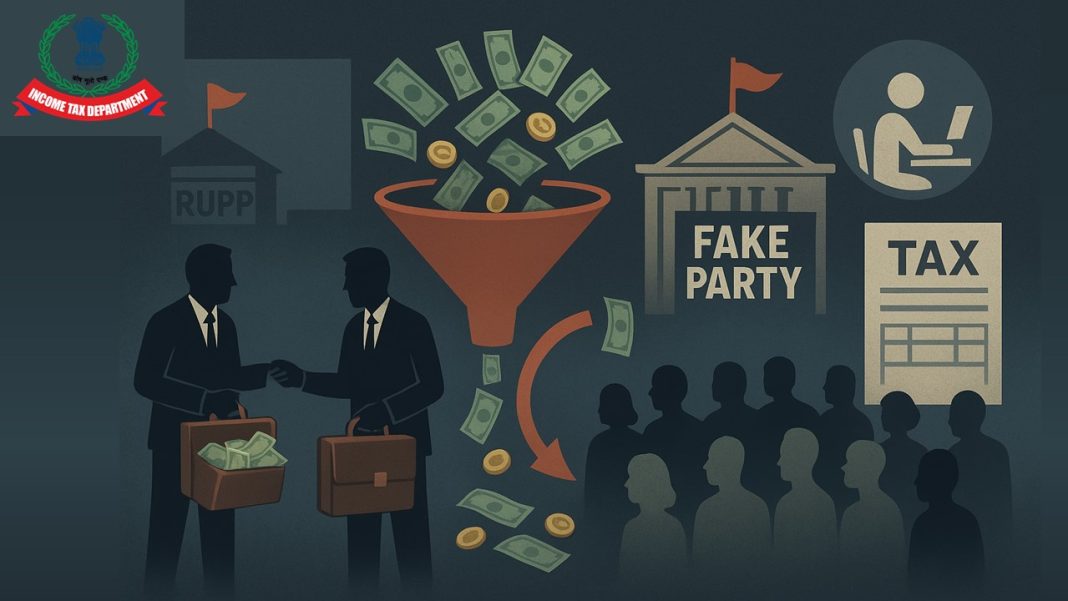Breaking: Income Tax Dept. Unearths Rs. 5,500 Crore Fake Political Donations Racket
The Income Tax Department has exposed a large-scale racket of bogus political donations exceeding Rs. 5,500 Crores. The department has started its investigation into Registered Unrecognised Political Parties (RUPPs). The racket involved over 1.6 lakh doubtful donors and was carried out by forming 36 fake parties over three years.
According to the officials of the Income Tax Department, the racket followed the round-tripping of funds technique, where these political parties used to deduct a small amount as commission from the total amount donated to them and returned the rest to their actual donors in cash. This allowed them to fraudulently claim deductions under Section 80GGC of the Income Tax Act. As of now, these parties have claimed over 4,400 fake deductions.
The senior official of the income tax department said, “This often involves round-tripping, where funds are returned to the original donors who then claim fraudulent tax deductions, resulting in a direct loss of thousands of crores in tax.”
The officials of the Income Tax Department carried out multiple searches on July 14, 2025, where they covered over 150 locations linked to intermediaries, RUPPs, and professionals, including chartered accountants (CAs). Investigation uncovered these parties had filed around 1.53 lakh income tax returns (ITRs) claiming these fake deductions of Rs. 4,478.
Sources say, “Over 50% of the funds flowed to just five parties. High-value donations were deliberately structured below reporting thresholds to evade detection. Donors received portions of their contributions back in cash; conduit entities withdrew Rs 1,290 crore, enabling large-scale tax evasion under Section 80GGC. Outward remittances totalling Rs 665 crore were also detected, suggesting cross-border hawala activity.”



